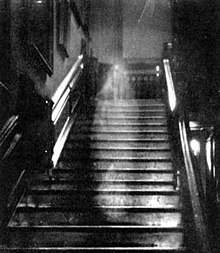We're pleased to spotlight a new book today: The Indie Writer's Survival Guide: Dos and Don'ts of Full-Time Freelancing, Year One by James O'Brien, just out from SlimBooks. It's a terrific overview of the freelance writing world, and a guide to transitioning from full-time writing to independent writing as a full-time career.
GG talked to James about cultivating clients, building networks, and anecdotal puffery.
What prompted you to write this book?
GG talked to James about cultivating clients, building networks, and anecdotal puffery.
What prompted you to write this book?
I found the publisher before the book was even an idea. SlimBooks is on to something when it comes to how business books work best, and how they don't work to the reader's benefit a lot of the time. They were looking for authors who could strip out the fluff and leave aside the repetitive anecdotal puffery that all too often pads business writing. I mean, anecdotes can be illustrative, and they can contextualize, but business-book readers have told me that they're annoyed by endless iterations of "Here's what Bob experienced one Monday in a meeting!" I like to think that we read business books to take away practical information, to receive a template or strategy that we can apply to what we're doing (or what we want to do).
What do you think is the biggest challenge to being an independent writer?
After cash flow, it's cultivating the client list: building and maintaining one that will sustain you week after week, one that can survive, and allow you to survive, for months and years at the job. Getting clients is often a giant problem when you're starting out, but even after you've earned your way into outlets that will take your work, it's equally nerve-wracking to be in this reactive space all the time. Editors change, publishers' business models shift, networks bloom and then dry up . . . you're never not in entrepreneurial mode, really. And that can wear a writer down if the projects aren't fine-tuned to emphasize elements that keep you engaged—passions, interests, challenges. You have to stay in love with the stories, or the vicissitudes of the environment are going to burn you out.
Freedom. And I don't mean the freedom to go sit in a coffee shop with your laptop all day; I mean the freedom to take on projects that you wouldn't be able to tackle if you were woking in a traditional full-time writing job. As an independent, you can write your way to a financial place that creates whole weeks without a deadline, and then you can start to explore. This kind of exploration, as a writer, takes you to places, literally, that you might never otherwise go. One morning you're answering an e-mail or pitching a piece to an editor, and then two weeks later you're on a plane, following a source or an idea that keeps you at the edge of your own skills and knowledge. This is the deeper kind of payoff that I think the happiest independent writers end up realizing and pursuing.
The publishing landscape is changing dramatically. How do you see this affecting independent writers?
Mostly I see it as beneficial. There are so many outlets and so many developing spaces online that an entrepreneurial mind can find its way into multiple revenue streams. I know that this is often not the ideal scenario for traditional full-timers—there's a lot to be said for security and benefits and the comfort of a team that you grow to know and trust. But once I made the transition to independence, a whole world opened up. There's a real frontier in the digital publishing milieu. Don't listen to the voices that only say "No pay! No pay!" They're wrong: there is a lot of money on the table, but you have to be aggressively open to the way mastheads and editorial work now, and it's not what J-school taught back in 1985, 1995, or even 2005. What we mean when we say "news" or "article" or even "journalism" is subject to a number of new and interesting pressures that just weren't there ten years ago. This is not all bad, or even mostly bad, but it takes some flexibility and time and effort to sort out what works about this for the individual writer, and what does not.
What other resources would you recommend for those who are transitioning into an independent writing career?
Avail yourselves of well-connected high-end networks such as Contently and Gotham Ghostwriters. That may sound like an advertisement, and I'm aware of where this interview is being published, but it's authentic advice, on my part, coming from what I know to be effective. Networks, especially online networks with well-funded projects, are more powerful than individuals, or at least they can save the individual a ton of time in the search for good work. There are lots of smart, young, successful people—writers, publishers, and network builders—who know this already. Be like them, and work with them, and with time and some humility, they'll change the way you work.
James O’Brien writes about business, technology, social media, film, wine, and travel. The Nieman Journalism Lab has called his work in the custom-content space "sponsored content done right." From 2008 to 2012 he reported and wrote extensively as a news correspondent for The Boston Globe. In 2012, he joined the caption-research team for photo-essayist Rick Smolan's The Human Face of Big Data. His fiction and poetry appear most recently in The Newer York and in Commas and Colons. New fiction is forthcoming in Space and Time and Footnote. O'Brien holds a PhD from the Editorial Institute at Boston University, where he researched Bob Dylan's other-than-song writings.







